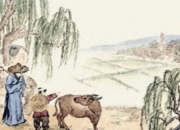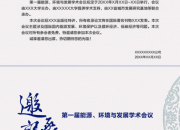恐惧可以教会我们什么英语演讲稿
时间:2021-08-31One day in 1819, 3,000 miles off the coast of Chile, in one of the most remote regions of the Pacific Ocean, 20 American sailors watched their ship flood with seawater.
1819年的某一天, 在距离智利海岸3000英里的地方, 有一个太平洋上的最偏远的水域, 20名美国船员目睹了他们的船只进水的场面。
They'd been struck by a sperm whale, which had ripped a catastrophic hole in the ship's hull. As their ship began to sink beneath the swells, the men huddled together in three small whaleboats.
他们和一头抹香鲸相撞,给船体撞了 一个毁灭性的大洞。 当船在巨浪中开始沉没时, 人们在三条救生小艇中抱作一团。
These men were 10,000 miles from home, more than 1,000 miles from the nearest scrap of land. In their small boats, they carried only rudimentary navigational equipment and limited supplies of food and water.
这些人在离家10000万英里的地方, 离最近的陆地也超过1000英里。 在他们的小艇中,他们只带了 落后的导航设备 和有限的食物和饮水。
These were the men of the whaleship Essex, whose story would later inspire parts of "Moby Dick."
他们就是捕鲸船ESSEX上的人们, 后来的他们的故事成为《白鲸记》的一部分。
Even in today's world, their situation would be really dire, but think about how much worse it would have been then.
即使在当今的世界,碰上这种情况也够杯具的,更不用说在当时的情况有多糟糕。
No one on land had any idea that anything had gone wrong. No search party was coming to look for these men. So most of us have never experienced a situation as frightening as the one in which these sailors found themselves, but we all know what it's like to be afraid.
岸上的人根本就还没意识到出了什么问题。 没有任何人来搜寻他们。 我们当中大部分人没有经历过 这些船员所处的可怕情景, 但我们都知道害怕是什么感觉。











